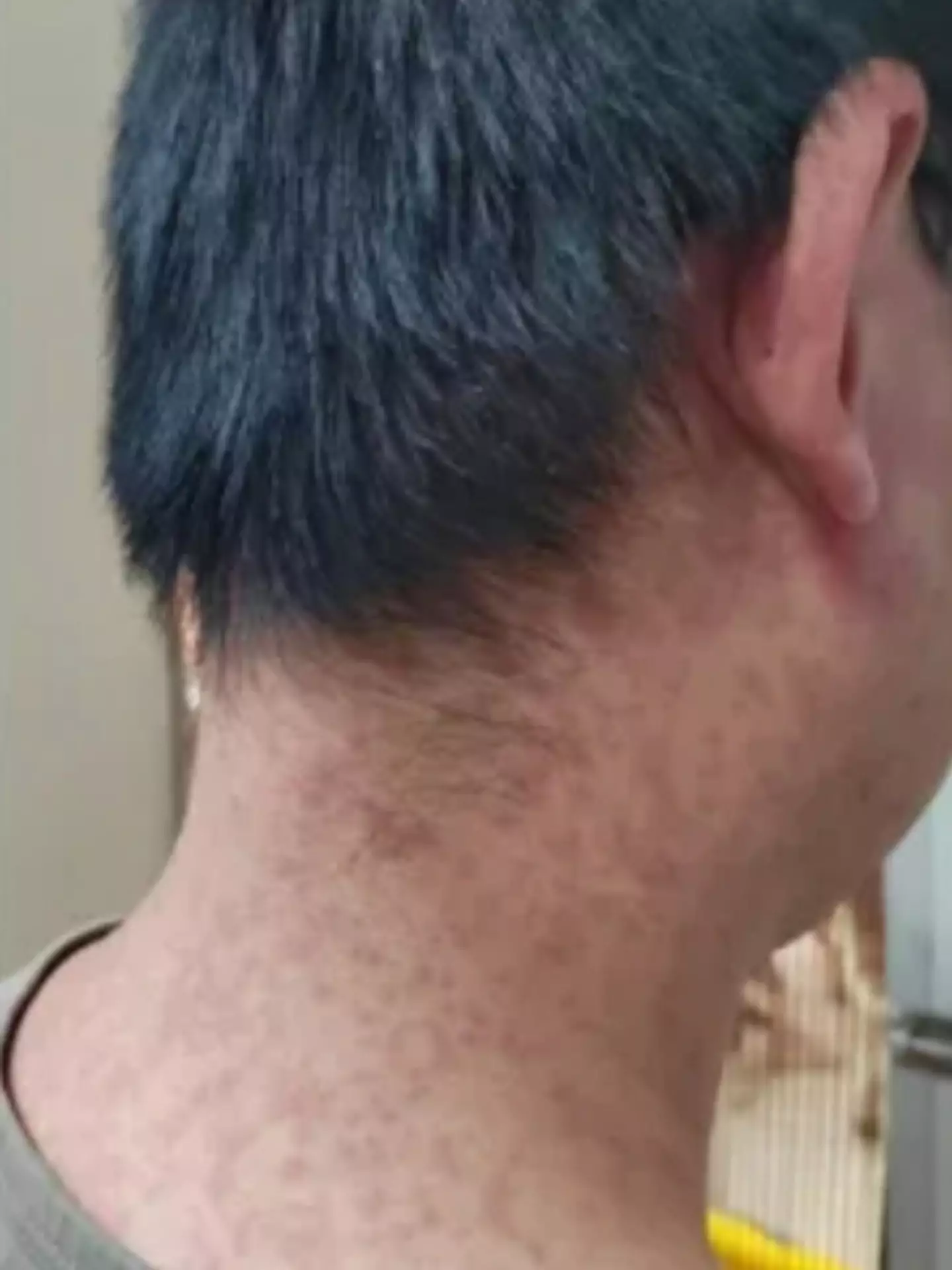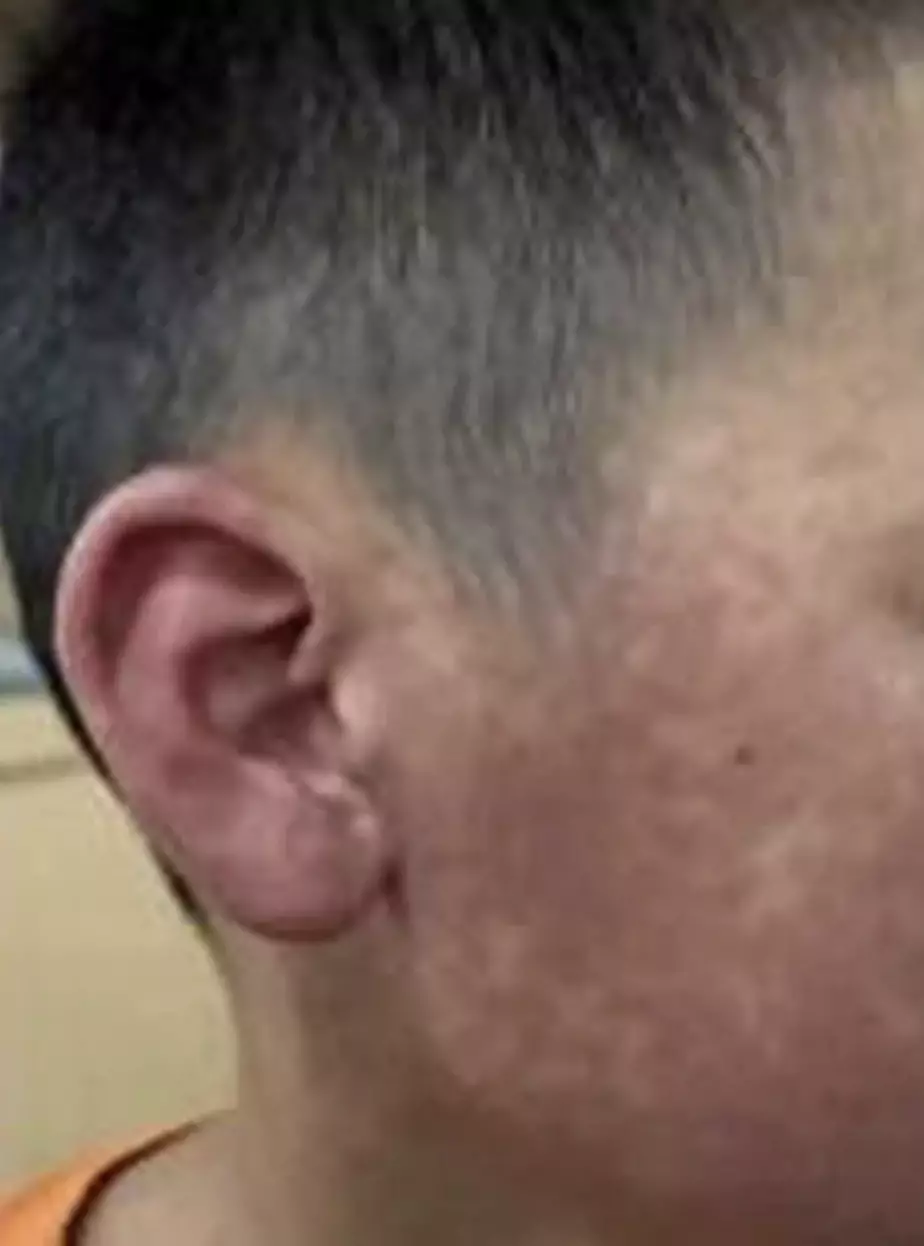.jpg)
Horror pictures show the symptoms of the Chikungunya virus as China has begun to impose ‘forceful pandemic measures’.
There have been over 7,000 cases of the mosquito-borne virus across the Guangdong province since July, with patients in Foshan city having to remain in hospital.
They are only allowed to be discharged after either having a negative test or completing a week-long stay.
While Chikungunya virus outbreaks are rare in China, they are more common in South and Southeast Asia and parts of Africa. The country is currently working hard to stop the rise of infections, implementing what it calls ‘forceful and decisive measures’.
Advert
In scenes that might give you shivering thoughts of Covid, sanitation workers have been spraying insecticide across the streets in a bid to cull infected mosquitoes.

However, the virus is not contagious from human to human, it is instead transmitted by the bite of an infected female Aedes mosquito. This mosquito is not present here in the UK, as the temperature isn’t consistently high enough for it to breed.
After being bitten, it typically takes between four and eight days for the first symptoms to come on, but it can be shorter or longer in some people.
Chikungunya is known by its sudden onset of fever usually joined by joint pain but symptoms can range from mild or non-existent to severe.
Other symptoms include a rash, headache, muscle pain, nausea and fatigue.

Chilling pictures have been shared by the local government in Foshan city to show the effect of the virus and visible signs it may present.
Published in local media, it shows patients with rashes and blotchy red skin across their body.
There is no cure for Chikungunya virus, but most people make a full recovery. For some, the pain and arthritis might carry on for several months or even years.
It’s not common for there to be serious complications but in older people, Chikungunya can contribute to the cause of death.

To help cut cases of it, Chinese authorities have been distributing mosquito nets with patients in hospital beds protected by them.
There’s no vaccine or drug to prevent the virus though, the only way to do so is to avoid being bitten by the Aedes mosquitoes.
Using a repellent is widely encouraged, and officials have also threatened fines for people who fail to disperse standing water. Chinese authorities have even deployed drones to hunt down insect breeding grounds in attempt to cull the mosquitoes.
Topics: Chikungunya virus, China, Health